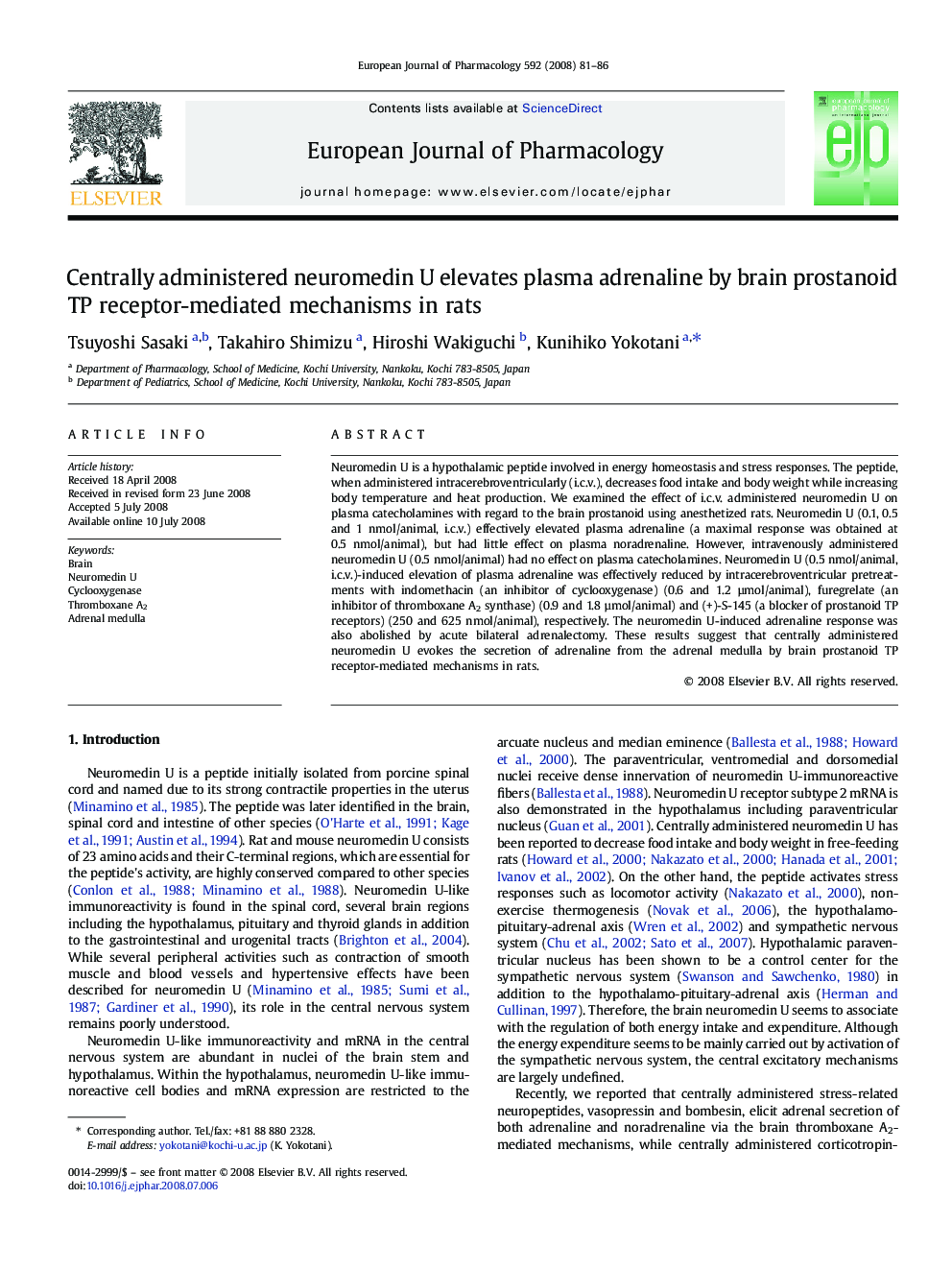| Article ID | Journal | Published Year | Pages | File Type |
|---|---|---|---|---|
| 2534865 | European Journal of Pharmacology | 2008 | 6 Pages |
Neuromedin U is a hypothalamic peptide involved in energy homeostasis and stress responses. The peptide, when administered intracerebroventricularly (i.c.v.), decreases food intake and body weight while increasing body temperature and heat production. We examined the effect of i.c.v. administered neuromedin U on plasma catecholamines with regard to the brain prostanoid using anesthetized rats. Neuromedin U (0.1, 0.5 and 1 nmol/animal, i.c.v.) effectively elevated plasma adrenaline (a maximal response was obtained at 0.5 nmol/animal), but had little effect on plasma noradrenaline. However, intravenously administered neuromedin U (0.5 nmol/animal) had no effect on plasma catecholamines. Neuromedin U (0.5 nmol/animal, i.c.v.)-induced elevation of plasma adrenaline was effectively reduced by intracerebroventricular pretreatments with indomethacin (an inhibitor of cyclooxygenase) (0.6 and 1.2 µmol/animal), furegrelate (an inhibitor of thromboxane A2 synthase) (0.9 and 1.8 µmol/animal) and (+)-S-145 (a blocker of prostanoid TP receptors) (250 and 625 nmol/animal), respectively. The neuromedin U-induced adrenaline response was also abolished by acute bilateral adrenalectomy. These results suggest that centrally administered neuromedin U evokes the secretion of adrenaline from the adrenal medulla by brain prostanoid TP receptor-mediated mechanisms in rats.
